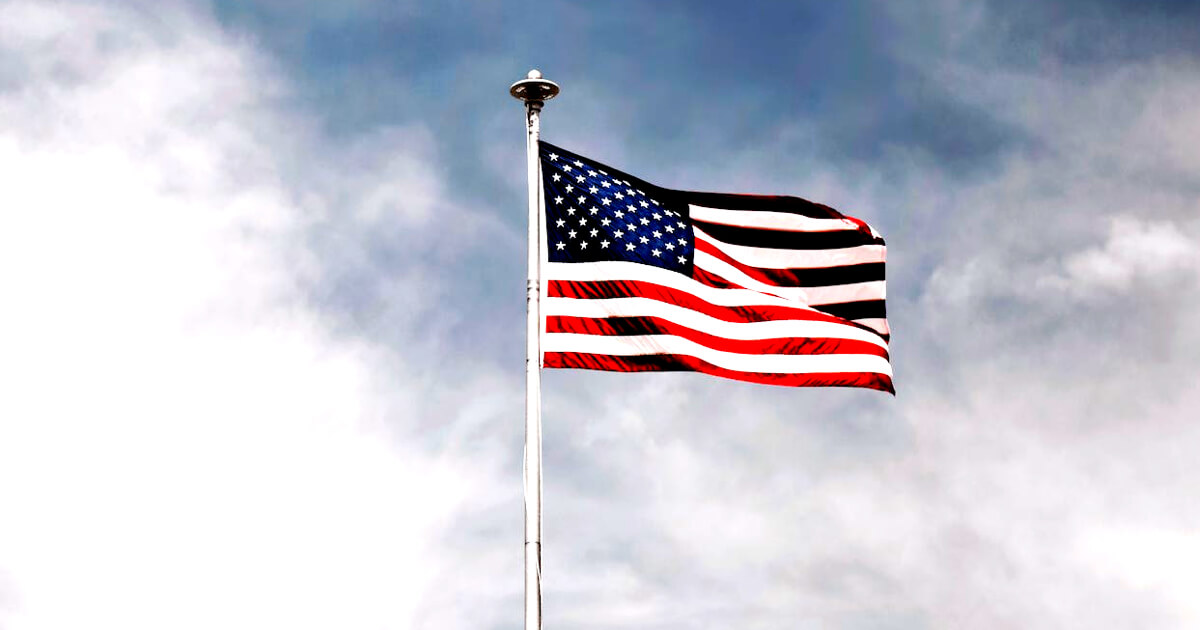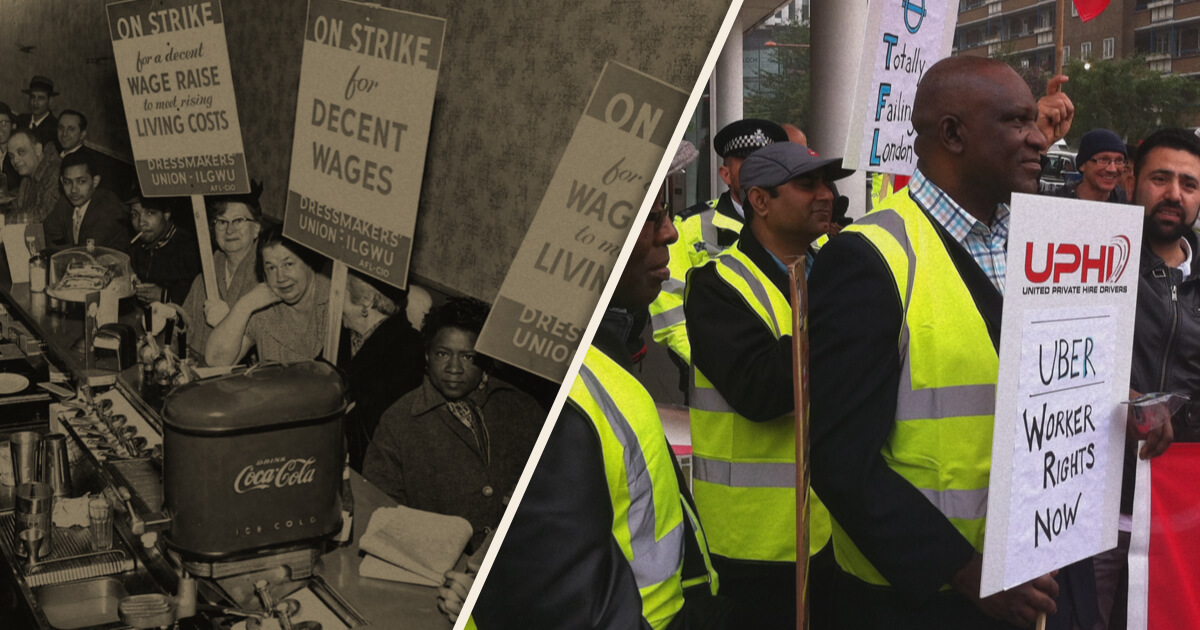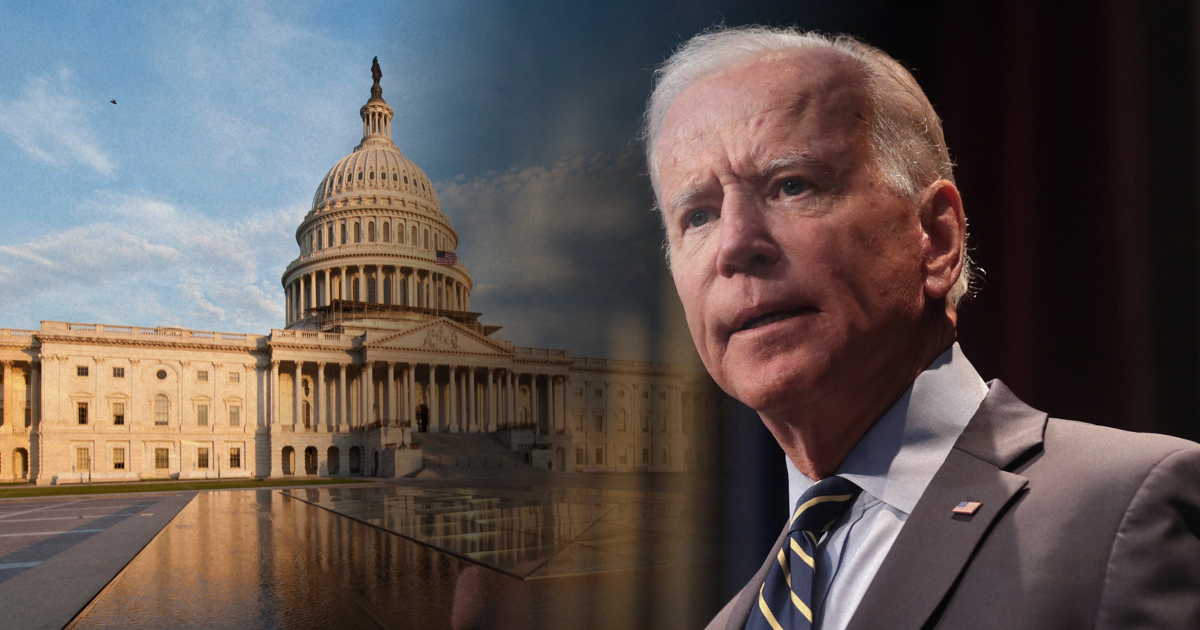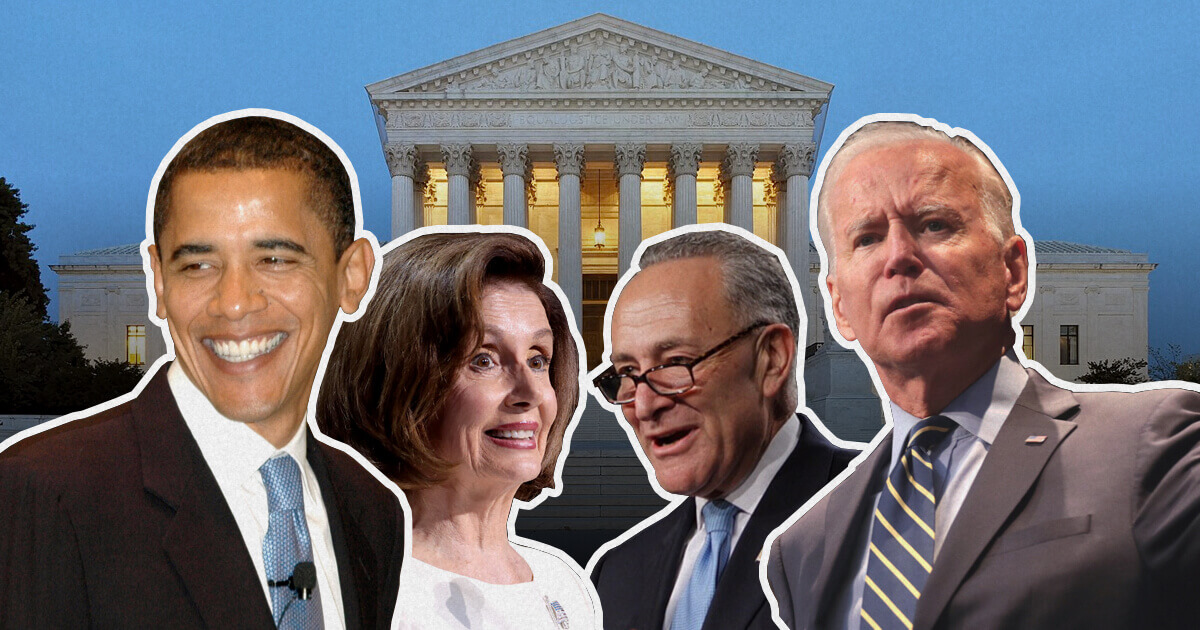The United States tells the world and its citizenry that it is the best country on the planet, where freedom and democracy reign, and where an American dream exists which affords all the opportunity to live flourishing ‘middle class’ lives with white picket fence homes and two automobiles. However, for the working masses of the United States, as the great comedic critic George Carlin noted, “it’s called the American Dream because you have to be asleep to believe it.” 1
When awake, what the American masses experience is the American nightmare; lives plagued by stagnant wages, inflation, and various forms of crippling debt. In the era of an empire in decline, the inhabitants of the belly of the beast find their conditions more and more unbearable. What the American working class is experiencing is an era of comprehensive crisis which has infiltrated every sphere of the capitalist mode of life.
The Marxist position on social revolution recognizes that there are two central factors, or conditions, which must exist for a revolution to take place. The first are the objective conditions, or what is also referred to as a “revolutionary situation;” 2 the second are the subjective conditions, which corresponds to the consciousness and organization of the working masses and the vanguard party. In this section I will argue that the objective conditions for revolution are largely present in the US, and that whatever might be missing will arrive with the forthcoming general crisis of capital, expected to hit sometime in the next two years.
However, I will argue that the emergence of the subjective conditions are fettered by the purity fetish which prevails in the socialist movement. Since it is the militants in this movement which are tasked with bringing the masses into the struggle for socialism, the overcoming of this purity fetish presents the precondition for a successful counter-hegemonic project. Lenin and the experience of the Bolshevik revolution shows that “the role of the vanguard fighter can be fulfilled only by a party that is guided by the most advanced theory.” 3 It is dialectical materialism, that outlook which Engels called Marxism’s “best working tool [and] sharpest weapon,” which can both cure the purity fetish of the socialist movement and afford it the means to realize its historically revolutionary role. 4
Objective Conditions in The U.S.
There are a plethora of factors which, when analyzed comprehensively, can point to the existence of objectively revolutionary conditions in the U.S. “Since the late 1970s,” as the Economic Policy Institute reports, “wages for the bottom 70 percent of earners have been essentially stagnant, and between 2009 and 2013, real wages fell for the entire bottom 90 percent of the wage distribution.” 5 In no state of the US is the federal minimum wage ($7.25) enough to survive; even if it is raised to $15 – as the democratic socialists and other progressives have called for – the minimum wage would still not be enough for a working class family to survive anywhere in the country. 6 With stagnant wages and inflation at a 40 year high, almost 60% of Americans are currently living paycheck to paycheck. 7 Many of these people are on the brinks of joining the 600,000 homeless people wandering around in a country with more than 17 million empty homes. 8 It is not surprising, in a country where there are 33 times more empty homes than homeless people, that 34 million people, including one in eight children, experience hunger while 30-40% of the U.S.’s food supply (40 million tons of food) is wasted every year. 9
As it becomes more difficult for working class Americans to survive, more and more have been forced to turn to borrowing. Currently, the average American “has $52,940 worth of debt across mortgage loans, home equity lines of credit, auto loans, credit card debt, student loan debt, and other debts.” 10 Additionally, because the US is the only developed country in the world without universal healthcare, the commodification of medicine has left more than half of Americans with such crippling medical debt that many have been prevented from “buying a house or saving for retirement”. 11 This same for-profit healthcare system found it unprofitable to take the measures necessary to properly prepare for the Covid pandemic, the result of which has been that the U.S., while being only 4% of the global population, accounts for more than 16% of the Covid deaths. 12 Meanwhile, socialist China has had only a very tiny fraction of the deaths found in the U.S. (0.49%) and has four times more people.
Although the U.S.’s post-WWII rise to the dominant imperialist force in the world afforded it the means to plunder its way into becoming the richest country on the planet, what one finds today is a decrepit empire with crumbling infrastructure consistently rated in the ‘D’ range. 13 While more than half of federal spending goes to sustaining the world’s most expensive military (spending more than the next 10 countries combined), many cities in the U.S., inhabited by millions of Americans, lack access to clean drinking water. 14 Additionally, the U.S. has been experiencing a “historic decline” in life expectancy; so much so that today the average Cuban, despite six decades of illegal blockades and hybrid warfare against their socialist project, lives around three years more than the average American. 15
The hardships faced by the American people are intensified by the experience of living in one of the most economically unequal societies in human history, where even by conservative numbers the “top 0.1 percent hold roughly the same share of [the] wealth as our bottom 90 percent.” 16 In the U.S., the richest 59 Americans own more wealth than the poorest half of the population (165 million people). 17 While the majority of working class Americans face difficulties in meeting their everyday needs, the richest monopolists in the country, those who own what we watch, buy, and eat, have been getting richer than ever before. 18
However, the crisis most Americans are facing is not limited to their economic conditions. It is, instead, a comprehensive crisis which has rippled into all spheres of life, expressing itself through profound psychological and social ills. These can be seen in the millions affected by the opioid epidemic; in the rise in violent crime rates and school shootings; and in the mental health crisis where nearly a third of American adults are struggling with depression and anxiety. 19 All of these conditions are expected to be worsened by the forthcoming financial crisis, and of course, by the climate crisis and the effects it will produce in terms of migration and resource scarcity in various parts of the world. 20
For more than a decade studies from bourgeois institutions have themselves confirmed what Marxists have known since the middle of the 19th century, namely, that “the modern state is but a committee for managing the common affairs of the whole bourgeoisie.” 21 The U.S., which spreads its blood soaked hands around the world plundering in the name of democracy, has been outed as a place where the demos (common people) do anything but rule (kratos). As Martin Gilens and Benjamin I. Page show,
In the United States, our findings indicate, the majority does not rule—at least not in the causal sense of actually determining policy outcomes. When a majority of citizens disagree with economic elites or with organized interests, they generally lose. Moreover, because of the strong status quo bias built into the U.S. political system, even when fairly large majorities of Americans favor policy change, they generally do not get it. 22
Far from being the ‘beacon of democracy’ it fancies itself to be, what the U.S. has is a “democracy for an insignificant minority, democracy for the rich,” which is the essence of bourgeois democracy. 23 Or, in other words, what the U.S. actually has is an oligarchy. However, the American people, burdened by the conditions of moribund imperialism, have been catching up to the lies pundits and ideologues disseminate to sustain bourgeois hegemony. The U.S. has some of the lowest voter turnout rates in the developed world; around 40% of the population eligible to vote does not participate in presidential elections, and in local elections this number increases to around 73%. 24 More than 60% of Americans are dissatisfied with the two-party system and are ready for third party alternatives, and only around 20% approves of what congress does. 25 Naturally, it is difficult to participate in a political process one does not feel represented in.
However, our two imperialist parties have reacted to this public dissatisfaction by cracking down on voting rights and on the ability for third parties to be on the ballot. 26 In addition, only 11% of Americans trust the media, 90% of which has been consolidated under the control of six companies. 27 Considering the aforementioned state of the American people, it is not surprising that despite countless resources dedicated to propagandize them against socialism, more than 40% of adults have a favorable view of socialism, and amongst millennials, polls show 70% would vote for a socialist candidate. 28
In his pamphlet, “The Collapse of the Second International,” Lenin describes the symptoms of a revolutionary situation in the following manner:
What, generally speaking, are the symptoms of a revolutionary situation? We shall certainly not be mistaken if we indicate the following three major symptoms: (1) when it is impossible for the ruling classes to maintain their rule without any change; when there is a crisis, in one form or another, among the “upper classes”, a crisis in the policy of the ruling class, leading to a fissure through which the discontent and indignation of the oppressed classes burst forth. For a revolution to take place, it is usually insufficient for “the lower classes not to want” to live in the old way; it is also necessary that “the upper classes should be unable” to live in the old way; (2) when the suffering and want of the oppressed classes have grown more acute than usual; (3) when, as a consequence of the above causes, there is a considerable increase in the activity of the masses, who uncomplainingly allow themselves to be robbed in “peace time”, but, in turbulent times, are drawn both by all the circumstances of the crisis and by the “upper classes” themselves into independent historical action. Without these objective changes, which are independent of the will, not only of individual groups and parties but even of individual classes, a revolution, as a general rule, is impossible. 29
These conditions constitute the objective factors one can generally find in a social revolution. In essence, as Lenin later stated concisely in Left-Wing Communism, “revolution is impossible without a nationwide crisis (affecting both the exploited and the exploiters).” 30 We have seen in the assessment above how the American masses are suffering more than usual, and additionally, how poll after poll has shown that they are unwilling to continue to live in the old way (e.g., immense disapproval of congress and the two-party system). These conditions are developing into what Gramsci called a “crisis of authority,” namely, the moment of a crisis when the “ruling class has lost its consensus [and] is no longer ‘leading’ but only ‘dominant.’” 31 As he famously argued, “the crisis consists precisely in the fact that the old is dying and the new cannot be born; in this interregnum a great variety of morbid symptoms appear.” 32
However, the masses’ dissatisfaction and their inability to live in the old way does not exhaust, as Lenin noted, all the conditions for an objectively revolutionary situation; first, the masses must not only be dissatisfied with the idea of continuing to live in the old way, they must also show the willingness to act, and secondly, the ruling class must itself be shaken by the crisis and in a position where they too cannot continue to rule in the old way.The willingness of the dissatisfied masses to act can be seen in a variety of places: from the 2020 summer uprisings, where 25-35 million Americans protested the racist police state following the murder of George Floyd; to the 2021 ‘Striketober’ wave where hundreds of thousands of workers went on strike; to the mass unionization efforts coming from workers in Starbucks, Amazon (which is the second largest employer in the U.S.) and other industries; to the current crisis in the railroads, where the self-proclaimed ‘most pro-worker president’ (i.e., Biden) forced upon rail workers a contract they voted against, leading unions like Railroad Workers United to call for the nationalization of the railroads (amongst other radical demands). 33 However, all of these have been spontaneous movements (some less ephemeral than others) which have been largely unable to be elevated to the level of revolutionary consciousness and organization. 34 They represent, nonetheless, the prime matter with which a revolutionary organization may form a successful mass struggle for power.
Have any of these conditions shaken the American ruling class? Do they find themselves unable to rule in the old way? Our response should be a resolute yes! The American empire, with its 900 bases around the world, used to be able to overthrow governments outside of its imperial sphere of influence with relative ease. In the international community, especially after the overthrow of the Soviet Union and the eastern socialist bloc, it achieved unparallel global hegemony, only opposed in the 1990s by Cuba and the Democratic People’s Republic of Korea. All things in this world, however, are in a constant state of flux, and sooner or later, it was expected that ‘the end of history’ would itself end, and that U.S./NATO imperialist unipolarity would be challenged. It is our era of flowering multipolarity which marks the fall the American empire, and with it, the ability of its rulers to ‘rule in the old way’.
Imperialism, it must be remembered, is not a separate political-military phenomenon governed by the set of foreign policies a nation takes. Instead, it is a stage of capitalism, where “the dominance of monopolies and finance capital is established; in which the export of capital has acquired pronounced importance; in which the division of the world among the international trusts has begun, in which the division of all territories of the globe among the biggest capitalist powers has been completed.” 35 If the U.S. state, an instrument of American and transnational finance capital, is unable to internationally govern in the ways it used to – that is, if it is unable to continue the expropriation and superexploitation of the peoples of the world – this is not simply a ‘foreign policy’ crisis, but a crisis in the integral state.
From failed coup attempts in Nicaragua, Venezuela, Cuba, and other countries; to the failed ‘Summits of the Americas’; to failing proxy wars against Russia and China; it becomes an undeniable fact that the ruling class cannot continue ruling in the old way, that the age of American imperialist unipolarity is over. As the world continues to turn towards China for win-win relations in international trade; as la Patria Grande continues its leftward turn and its hemispheric unity against the U.S.’s Monroe Doctrine style engagement with the region; as movements towards de-dollarization occur across the planet; as European citizens continue to protest the exacerbation of their material conditions by the U.S. and NATO’s proxy war against Russia; this crisis in the ruling class will show itself to be more pronounced.
Additionally, what greater depiction of this crisis of legitimacy than the fact that both parties, over the last two presidential election cycles, have committed themselves to challenging the election results? First, with the election of Donald Trump in 2016 – a victory of course which was garnered while losing the popular vote – the democrats spent the next four years pushing the narrative that Trump colluded with Russia, and even attempted to impeach him over this. This, along with a long-standing history of anti-Soviet and anti-Russia propaganda, set the ideological grounds – especially amongst previously ‘anti-war’ liberals – for the Russia hysteria and Putin demonization driving the liberal thirst for WWIII now. Then, in 2020, the same was done by a significant portion of the republican party and by most of the MAGA base, who argued that the election was stolen by the democrats.
As Marxists know, democracy in liberal bourgeois states is limited to the peaceful transfer of power from one faction of the ruling class to another through elections. Today we can say that even this superficial appearance of democracy is crumbling. In doing so, we can see here another symptom of the ruling classes not being able to rule in the old way.
In essence, by every standard the Marxist tradition uses to assess objectively revolutionary conditions, we can say that the U.S. currently meets all of them and is heading towards making them only more pronounced in the coming months and years. However, “social revolution demands unity of objective and subjective conditions.” 36 As Lenin noted, “revolution arises only out of a situation in which the above-mentioned objective changes are accompanied by a subjective change, namely, the ability of the revolutionary class to take revolutionary mass action strong enough to break (or dislocate) the old government, which never, not even in a period of crisis, “falls”, if it is not toppled over.” 37
Subjective Conditions in the US
The development of the subjective conditions for revolution is, in essence, synonymous with the development of a successful counter-hegemonic project – that is, with the development of an intellectual and moral vanguard that can win over the masses’ minds and hearts to the struggle for socialism. For Gramsci, “the starting point” of every counter-hegemonic struggle “must always be that common sense which is the spontaneous philosophy of the multitude and which has to be made ideologically coherent” by Marxist philosophy. 38 As Jean-Pierre Reed and myself have argued,
The intellectual leaders of a counter-hegemonic project will find that their theoretical weapon – the philosophy of praxis [dialectical materialism] – is null in persuading the masses insofar as it does not begin with a critical rearticulation of the popular beliefs the masses already hold. Within the incoherent, fragmentary, and contradictory clusters of beliefs which the masses hold, the intellectual leadership must find the kernels out of which socialist consciousness and emotions may develop… This educative process is comprehensive in character: the intellectual leadership does not simply wish to elevate the masses to a “higher conception of life,” but to a higher form of life in general – it is a transformation which modifies the outlook the masses have towards the world, and, alongside this, changes the masses’ desires, passions, emotions, and ethical life. 39
For the ideological and emotive rearticulation of the masses’ common sense and feelings, what is required from the intellectual leadership (i.e., the vanguard party) is a “dialectical and referential” relationship with the masses. 40 In order to successfully educate the masses, the vanguard must be grounded in them, they must learn from the masses and know them concretely. Its relationship with the masses must be “active and reciprocal,” such that “every teacher is always a pupil and every pupil a teacher.” 41 “The educator,” as the young Marx had noted, “must himself be educated.” 42
This fundamental grounding in the working class is absent in the socialist ‘left’ in the U.S. There exists a profound gulf between the working class and socialist organizations, and what often comes to dominate in the latter is what Gus Hall called “petty bourgeois radicalism” – a mode of political practice and thinking which reflects the interests of the petty-bourgeoisie and, especially today, what Barbara and John Ehrenreich called the Professional Managerial Class (PMC). 43 We may refer to these class positions under the broader term of ‘middle class’. Nonetheless, what is important to note is that the class composition of the left in the US is dominated by this middle class. This is not a new phenomenon. As Barbara and John Ehrenreich argued in the late 1970s,
This ‘middle-class’ left, unlike its equivalent in early twentieth-century Europe or in the Third World today, is not a minority within a mass working class (or peasant) movement, it is, to a very large extent, the left itself. 44
Although it is perfectly fine to include professionals, managers, and part of the petty-bourgeoisie in the socialist struggle, the base of any socialist organization must be the working masses, not these other classes which, although hurt by state-monopoly capital, bring with them class biases (some which are antagonistic to the working class) into the workers movement. Marx had already warned about the negative influence professionals could bring into the labor movement, and held that the precondition for professionals to be allowed within socialist organizations must be that “they should not bring with them the least remnant of bourgeois, petty-bourgeois, etc., prejudices, but should unreservedly adopt the proletarian outlook”. 45 It is impossible for these conditions to be met as the left stands today, where the PMC segment of the middle-class is the most dominant, and is composed of
Salaried mental workers who do not own the means of production and whose major function in the social division of labor may be described broadly as the reproduction of capitalist culture and capitalist class relations. 46
This class functions and develops its political culture through what has been called the iron triangle institutions of academia, the media, and NGO’s. 47 Its engagements with the working class often leave the latter feeling as if they were approached by Human Resources (HR). The HR atmosphere estranges and repels working people while providing a warm home for more PMC individuals. This creates positive feedback loops that proliferate the influence of the PMC in socialist organizations. As Noah Khrachvik has argued:
It does not matter how nice or just the petty bourgeois radical’s ideas sound. It does not matter how many petty bourgeois radicals cancel the working class for not living up to [their] fantasy, or try to bully it into silence or subjugation to the lofty places the professionals and petty bourgeoisie occupy within their own minds–if the class interests of the proletariat are not being fulfilled–and more, if the proletariat does not see and understand that its interests are being fulfilled, then there will be no revolutionary motion or movement. There will be stagnation at best, and reaction at worst. 48
However, the dominance of the PMC within socialist organizing in the U.S. is not a spontaneous phenomenon. It is grounded on a century of state sanctioned anti-communist attacks which have purged communists from trade unions and infiltrated socialist organizations to promote factionalism and forms of socialism which are compatible with the existing order. The work of Gabriel Rockhill on the “global theory industry” shows how, through groups like the Congress for Cultural Freedom, the works of classical authors from the Western Marxist tradition were propped up by a “political economy of knowledge” that was and is backed by Western capitalist state departments and intelligence agencies (as well as by major capitalist foundations like Rockefeller, Ford, etc.) which benefit from the dissemination of a compatible, anti-Communist ‘Marxism’ which, although critical of capitalism, denounces every socialist experiment seen around the world and justifies the wars of empire from the ‘left’ when it needs to. 49
These are the objective forces grounding what I have called the purity fetish outlook of Western Marxism; an integrative term I use to comprehensively examine the abstract, idealist, and metaphysical obsession with only supporting or working with that which is pure. “For Western Marxists,” as I’ve previously argued,
the triumphant socialist experiments of the 20th and 21st century, in their mistakes and ‘totalitarianisms’, desecrate the purity in the holiness of their conception of socialism. The USSR must be rejected, the Spanish civil war upheld; Cuban socialism must be condemned, but the 1959 revolution praised; Allende and Sankara are idols, Fidel and Kim Il-Sung tyrants, etc. What has died in purity can be supported, what has had to grapple with the mistakes and pressures that arise out of the complexities and contradictions of building socialism in the imperialist phase of capitalism, that must be condemned. 50
This is not only the only ‘Marxism’ which is acceptable within the American academy and civil society, but it has itself become an indispensable component for the defense of the existing order. This is a natural result of the fact that, if they genuinely consider (as they do) communism to be as evil as fascism, then bourgeois liberal democracy is, like the world Leibniz’s God has created, the best of all possible worlds. This makes it the ideal form of controlled opposition; an opposition that buys fully into Thatcher’s TINA (there is no alternative), and hence, will never substantially oppose the existing order, for it considers its alternative far worse. From a Gramscian perspective, this shows how controlled forms of ‘counter-hegemony’ have become necessary to sustain the hegemony of the existing order; and how the dominant institutions have been able to get ahead of the discontent capitalism creates by diverting dissenters into organizations and pathways of critique which don’t substantially threaten capitalist-imperialism.
This position is pervasive in the Bernie Sanders and Democratic Socialist movement which composes the largest chunk of ‘socialist’ organizing in the US. For instance, in the 2019 socialism conference, hosted by the Democratic Socialists of America, Jacobin, and Haymarket Books, China, Cuba, Venezuela, and Nicaragua were condemned as ‘authoritarian.’ Long behold, the following week a report from Ben Norton and Max Blumenthal would show that some of the hosted panelists had received aid from various imperialist organizations like the National Endowment for Democracy. 51 This raises an interesting paradox I have previously explored: “how can anyone be a socialist if they genuinely think each time a socialist or communist party has been in power, it has resulted in great failures? What sort of arrogance is required to claim that everyone in the third world has failed at socialism, but we, the virtuous West, we are the ones who will succeed!” 52
This purity fetish position concerning socialist states is not only verifiably false, but revolutionary futile! Why would the working class follow something which has always failed? Especially since the working class under discussion has been generationally breastfed anti-communist propaganda. When workers ask the purity fetish Marxists: ‘why would I organize for socialism if the media, schools, and my family have always told me that it leads to poverty, genocide, and societal failure?’ what can the response of these ‘socialists’ be? Considering they themselves accept the same propaganda the workers have been force-fed to believe, it would look something like: ‘yes, yes, that is all true, the problem is that those attempts at socialism were never actually socialism; socialism is really this beautiful idea that exists in its pure form in my head’. To accept struggling for socialism, the worker under discussion would have to be as infantile and simple-minded as the socialist he speaks to.
Instead of this, socialists and communists should be using the immense successes achieved by socialism in the Soviet Union, China, Cuba, Bolivia, etc. as examples for what socialism can achieve even while under the boot of constant hybrid warfare from the global imperialist system. We must be able to show our working class what socialism has and can provide for the mass of people. Before this can be achieved, the left must be able to remove the blinders which have dogmatically made it have a narrow, imperialist-friendly, view of socialist and anti-imperialist states. They must be able to engage in a concrete study of past and present socialist experiments, to learn from their successes, and to understand their mistakes within their proper context, not in an abstract and ahistorical manner.
In the context of the US, the purity fetish also manifests itself in the assessment of which parts of the working class are ‘pure’ enough to organize, and which must be left alone in fear of contamination. If a large chunk of the working class is socially conservative, and henceforth, fails to meet all the purity markers the enlightened PMC left has set as the a priori conditions for approval, they will be rejected as – in the words of Hillary Clinton – a “basket of deplorables,” or worst, as ‘fascists’ uncapable of being brought to the socialist movement. For these Marxists the traditional communist slogan is no longer “workers and oppressed people of the world unite,” it is “socially enlightened workers and oppressed people of the world unite.” These ‘Marxists’ don’t see in the millions of working class Americans who voted for Trump a group of people deceived by Trump’s shallow and fake anti-establishment discourse; they don’t see that what is implicit in that vote is a desire for something new, something which only the socialist movement, not Trump or any bourgeois party, could provide. Instead, they see in this large chunk of the working class a bunch of racists bringing forth a ‘fascist’ threat which can only be defeated by tailing the democrats. Silly as it may sound, this policy dominates the contemporary communist movement in the U.S.
The purity fetish preeminent in Western Marxism forgets that, as Lenin said, one “can (and must) begin to build socialism, not with abstract human material, or with human material specially prepared by us, but with the human material bequeathed to us by capitalism.” 53 Communists cannot pop into existence a ‘pure’ working class from a void, they must learn how to organize all workers irrespective of the differences the ruling class foists on the working masses to divide them. Communists must understand that the backwardness the working class may have will not be overcome if one ignores them – this will only lead them into the hands of the fascists, who are always a contending force in capitalism’s moments of crisis. Instead, it must be acknowledged that only through class struggle can the most backward elements of the working class evolve. This does not mean you ‘tail’ behind them, but that you understand that because of their class position they are objectively revolutionary, and therefore, that their consciousness and emotions can always be elevated and rearticulated towards socialism. If communists do not have confidence in their ability to convince workers who don’t already agree with them to struggle for socialism, how can they consider themselves communists? What are they doing besides preaching to the choir? 54 As Lenin eloquently noted,
It would be an egregious folly to fear this “reactionism” or to try to evade or leap over it, for it would mean fearing that function of the proletarian vanguard which consists in training, educating, enlightening and drawing into the new life the most backward strata and masses of the working class and the peasantry. On the other hand, it would be a still graver error to postpone the achievement of the dictatorship of the proletariat until a time when there will not be a single worker with a narrow-minded craft outlook, or with craft and craft-union prejudices… The task devolving on Communists is to convince the backward elements, to work among them, and not to fence themselves off from them with artificial and childishly “Left” slogans. 55
The purity fetish ‘Marxists’, however, see the world statically and through an essentialist framework; they do not understand the struggle for socialism as a process – to them the forces that exists currently will always remain where and as they are. This outlook is fundamentally antagonistic with the task bequeathed to communists by history, namely, to develop the subjective conditions for revolution. However, this outlook is not eternal, it too is subject to change and can be overcome through the development of the dialectical materialist worldview. When one consistently applies in their revolutionary practice the understanding that the world is “dominated by change and interconnection, and that if we study the world concretely, we may begin to decipher the forms and structures through which change and interconnection take place,” the anti-dialectical essence of the purity fetish can be overcome. 56
There is a second unique form the purity fetish takes in the US. Gramsci’s work helps us understand that communists must appeal to the common sense understanding and feelings of the masses, and from there critically rearticulate kernels towards socialism. If rejecting socialist experiments abroad and large chunks of the working class at home was not enough, the purity fetish Marxists add on to their futility in developing subjective conditions for revolution by completely disconnecting themselves from the traditions the American masses have come to accept. Bombastic and ultra-left slogans such as “Abolish America” have become more and more popular in American communist spaces. For them and their one-sided outlook, the U.S. is reducible to settler colonialism, imperialism, exploitation, slavery, and all the crimes of the ruling class and its state. Since US history is not pure enough for their purity fetish outlook, it must be discarded wholesale. This is done through synecdochally treating the history of the owning class and its state as the whole history of America.
Paradoxically enough, although US history is too impure for US communists to accept, it was always praised by the leaders of the global communist movement, from Marx to Lenin to Mao to Ho Chi Minh and Fidel. For instance, in his 1918 ‘Letter to American Workers,’ Lenin would say that
The history of modern, civilised America opened with one of those great, really liberating, really revolutionary wars of which there have been so few compared to the vast number of wars of conquest which, like the present imperialist war, were caused by squabbles among kings, landowners or capitalists over the division of usurped lands or ill-gotten gains. That was the war the American people waged against the British robbers who oppressed America and held her in colonial slavery, in the same way as these “civilised” bloodsuckers are still oppressing and holding in colonial slavery hundreds of millions of people in India, Egypt, and all parts of the world
The American people have a revolutionary tradition which has been adopted by the best representatives of the American proletariat, who have repeatedly expressed their complete solidarity with us Bolsheviks. That tradition is the war of liberation against the British in the eighteenth century and the Civil War in the nineteenth century. In some respects, if we only take into consideration the “destruction” of some branches of industry and of the national economy, America in 1870 was behind 1860. But what a pedant, what an idiot would anyone be to deny on these grounds the immense, world-historic, progressive and revolutionary significance of the American Civil War of 1863-65! 57
A century and a half after the American Declaration of Independence from the English crown, in 1945, Ho Chi Minh would quote its ideals in the Vietnamese declaration of independence from France and Japan, where he sums them up in the following manner: “All the peoples on the earth are equal from birth, all the peoples have a right to live, to be happy and free.” 58 Almost a decade after, in 1953, Fidel Castro would quote this document at length in his eminent ‘History Will Absolve Me’ defense, following the assault on the Moncada barracks. A little more than a decade after, Mao Tse-Tung would say in a 1965 interview with American journalist Edgar Snow that the US
Had first fought a progressive war of independence from British imperialism, and then fought a civil war to establish a free labor market. Washington and Lincoln were progressive men of their time. When the United States first established a republic, it was hated and dreaded by all the crowned heads of Europe. That showed that the Americans were then revolutionaries. 59
For all the undeniable and condemnable flaws of the ruling class’s history, we must not forget that in the underbelly of this history lies its opposite – a long, arduous history of struggle against various forms of exploitation and oppression. This is the history of figures like Thomas Paine, Thomas Skidmore, John Brown, Frederick Douglass, August Willich, Daniel DeLeon, Eugene Debs, Bill and Harry Haywood, Elizabeth Flynn, William Foster, Henry Winston, W.E.B. DuBois, Martin Luther King Jr., and thousands more. This is the history, further, of the abolitionist movement, of the workers movement, of the suffrage movement, of the various socialist, communist, and anarchist organizations that emerge in the late 19th and early 20th century. This is the history, in essence, of the struggle against capital, the state, and the various tactics used to keep the working mass divided amongst race, sex, religion, and other factors which hinder the collective class struggle.
This is a history which should raise the spirits of today’s communists with pride, letting us feel that the struggles we wage today redeem those who for centuries have fought the same fight in the same land. It should offer our struggles a new dimension of historical urgency, grounded on the commitment to not let struggles of previous generations of compatriots go in vain.
An honest glance at our history will help one recognize that the country has been composed of a unity of two opposed struggling poles – one which fights to defend the interests of the accumulation of capital, the other which seeks to defend the interest of working and oppressed peoples. These poles represent the political struggles of what Dr. Martin Luther King Jr. called the “two Americas” – one which is “perishing on a lonely island of poverty” in the “midst” of the other, which delves in “a vast ocean of material prosperity”. 60
The history of those who have fought for socialism, peace, workers’ rights, indigenous, black, and women’s rights, is not a separate history which stands outside of America fighting against it. Instead, this history is an immanent extension of the injustices that have permeated our country. The workers who partook in these struggles, in their great majority, saw themselves as the real representatives of the American people and of the American values of life, liberty, pursuit of happiness, sovereignty, the right to revolution and to a government genuinely of, by, and for the people. They saw themselves as taking the progressive side of the 1776 revolutionary tradition to socialism, which they considered to be its practical and logical conclusion. As the late historian Staughton Lynd wrote,
For almost two hundred years all kinds of American radicals have traced their intellectual origins to the Declaration of Independence and to the Revolution it justified. They have stubbornly refused to surrender the memory of the American Revolution to liberalism or reaction, insisting that only radicalism could make real the rhetoric of 1776. 61
The progressive and socialist struggles of our country’s past were not ‘Anti-American’ or working under slogans such as “death to America”. They saw the owning classes, their state, and the various bourgeois apparatuses as the real anti-Americans, as the ones who keep our population alienated, exploited, and oppressed while periodically sending them to wars abroad, where they lose limbs and lives to fight people whom they have more in common with than those who sent them to war. We must recall the words of the great Paul Robeson as he was being tried by the House Committee on Un-American Activities in 1956: “Jefferson could be sitting here, and Frederick Douglass could be sitting here, and Eugene Debs could be here.” 62 And when he was asked about the patriotism of his friend, Ben Davis, a Communist Party leader and New York City councilmen, he said “that he is as patriotic an American as there can be, and you gentlemen belong with the Alien and Sedition Acts, and you are the nonpatriots, and you are the un-Americans, and you ought to be ashamed of yourselves”. 63
If this tradition is forgotten, we will be doing the owning classes a favor – for this is what they’ve done to the tradition in the history books taught in our schools, where it has either been erased, sanitized, or domesticated. If we ignore this tradition because of its lack of purity, we tear the historical legs off the socialist movement and yield to what McCarthyism has been erroneously propagandizing the American working masses to believe – namely, that socialism and communism are foreign and antagonistic to America. We would (as we currently are) tear ourselves off from establishing any connection with the masses and their common sense understanding and feelings.
No working class person will support a struggle which aims at bringing about the annihilation of their country. They would, however, support the sublation, i.e., the overcoming, of our present bourgeois state by a worker’s state. This is how the communists of the past, guided by the dialectical materialist worldview, understood their connection to their history and their masses. The qualitative transformation involved in a revolution is not a full-fledged annihilation, something is always preserved and elevated into the new society. For American communists this has meant a fight to eliminate the evils of capitalism, imperialism, racism, sexism, and so on, while preserving and having pride in the history our people have in fighting against the former. In the process of doing this, communists in generations past would lead the masses to understand, as the saying goes, that socialism is as American as apple pie! This is something that, if we can overcome the purity fetish, we may do once again.
Conclusion
Today we may safely say that the US is under objectively revolutionary conditions, expected only to intensify in the near future. These conditions provide fertile soil for a revolutionary transformation. However, objective conditions are not enough, it is necessary for the subjective factor (i.e., the masses’ development of socialist consciousness with the aid of a revolutionary vanguard) to develop into revolutionary organs of power grounded in the working class. In the U.S., the purity fetish which predominates in the outlook of communists presents a fetter for the actualization of this subjective factor. Only by overcoming this outlook can the subjective conditions for revolution develop, and hence, can social revolution genuinely be put on the table.
This requires, however, three processes to occur. I must note that the following three processes should not be thought of separately, but dialectically, the development in one simultaneously brings forth the development in another.
- A process of critical self-reflection by the dominant socialist and communist organizations. These must become aware of their class composition, and how the influence of the iron triangle of academia, the media, and NGO’s have come to ground their political culture and their purity fetish outlook.
- Once critical self-awareness has occurred, all efforts should be made to have the working class – not the PMC, be the center and soul of the organizations.
- Theoretical education must become one of, if not the, central priority. Every cadre should master and be able to consistently approach the world through the dialectical materialist worldview. This cannot be reduced to the dogmatic remembering of a few slogans and conclusions which are then copied and pasted from one context to another. To have a genuine transformation of outlook, to be able to approach the world through a dialectical materialist framework, is a creative and complex endeavor; one which requires the constant concrete study of the concrete. This is how we carry the living spirit of Marxism-Leninism into our age and overcome the one-sided extremes of right-opportunism and ultra-leftism, which are but various forms through which the purity fetish manifests itself.
This article was originally published in the Second Issue of the Journal of American Socialist Studies (Winter 2022) pp. 1-16.
Footnotes
- George Carlin, “Life Is Worth Losing,” (2005): https://www.youtube.com/watch?v=acLW1vFO-2Q
- V. I. Lenin, Collected Works Vol. 21 (New York: International Publishers, 1974) 213.
- V. I. Lenin, Collected Works Vol. 5 (New York: International Publishers, 1977) 370.
- Karl Marx and Friedrich Engels, Marx and Engels Collected Works Vol 26 (New York: International Publishers, 1990) 383.
- Lawrence Mishel, “Causes of Wage Stagnation,” Economic Policy Institute (January 06, 2015): epi.org
- “Minimum Wage is not Enough: A True Living Wage is Necessary to Reduce Poverty and Improve Health,” Drexel University Center for Hunger-Free Communities (2021): drexel.edu
- Meghan Parsons, “Report: 58% of Americans Living Paycheck to Paycheck,” Spectrum News (September 17, 2022): spectrumnews1.com
- “Homeless Population,” USA Facts: https://usafacts.org/data/topics/people-society/poverty/public-housing/homeless-population/ ; “Homelessness and Empty Homes – Trends and Covid-19 Impact,” Self: https://www.self.inc/info/empty-homes/
- “Facts About Hunger in America,” Feeding America: https://www.feedingamerica.org/hunger-in-america ; “Food Waste in America in 2022,” RTS: https://www.rts.com/resources/guides/food-waste-america/
- Liz Knueven, “The Average American Debt by Type, Age, and State,” Insider (May 25, 2021): https://www.businessinsider.com/personal-finance/average-american-debt
- Mike Winters, “Over Half of Americans Have Medical Debt, Even Those with Health Insurance – Here’s Why,” CNBC (March 11, 2022): https://www.cnbc.com/2022/03/11/why-55percent-of-americans-have-medical-debt-even-with-health-insurance.html
- “Covid-19 Pandemic Death Rates by Country,” Wikipedia: https://en.wikipedia.org/wiki/COVID-19_pandemic_death_rates_by_country
- “Infrastructure Categories,” 2021 Report Card for America’s Infrastructure: https://infrastructurereportcard.org/infrastructure-categories/
- Dave Lindorff, “Your Tax Dollars at War: More Than 53% of Your Tax Payment Goes to the Military,” Common Dreams: https://www.commondreams.org/views/2010/04/13/your-tax-dollars-war-more-53-your-tax-payment-goes-military ; Ashik Siddique, “The U.S. Spends More on its Military Than the Next 10 Countries Combined,” National Priorities Project (April 30, 2020): https://www.nationalpriorities.org/blog/2020/04/30/us-spends-military-spending-next-10-countries-combined/ ; Robin Lloyed, “A Growing Drinking Water Crisis Threatens American Cities and Towns,” Scientific American (September 09, 2022): https://www.scientificamerican.com/article/a-growing-drinking-water-crisis-threatens-american-cities-and-towns/
- Deidre McPhillips, “US life expectancy continues historic decline with another drop in 2021, study finds,” CNN (April 08, 2022): https://www.cnn.com/2022/04/07/health/us-life-expectancy-drops-again-2021/index.html ; Rob Minto, “Americans Can Now Expect to Live Three Years Less than Cubans,” Newsweek (September 02, 2022): newsweek.com
- Cyndi Suarez, “With the Highest Inequality in Human History, Societies Are Ripe for Social Change,” NP (September 22, 2017): https://nonprofitquarterly.org/highest-inequality-human-history-societies-ripe-social-change/ ; Bob Lord, “Inequality in America: Far Beyond Extreme,” Inequality.Org (October 12, 2020): https://inequality.org/great-divide/inequality-in-america-far-beyond-extreme/
- Noah Manskar, “Just 59 Americans own more wealth than half the country, data shows,” New York Post (October 08, 2020): https://nypost.com/2020/10/08/just-59-americans-own-more-wealth-than-half-the-country-data/
- Bruce Livesey, “As the pandemic continues, the rich are getting richer than ever before — and economists are getting concerned,” Toronto Star (August 17, 2020): https://www.thestar.com/business/2020/08/15/as-the-pandemic-continues-the-rich-are-getting-richer-than-ever-before-and-economists-are-getting-concerned.html
- Azadfard M, Huecker MR, Leaming JM, “Opioid Addictio,” National Library of Medicine – StatPearls (January 2022): https://www.ncbi.nlm.nih.gov/books/NBK448203/ ; Emma Colton, “Violent Crimes on the Rise in 2022, Following Previous Unprecedented Spike in Muders,” Fox News (May 18, 2022): https://www.foxnews.com/us/major-cities-violent-crimes-data-murders-shootings ; Donna St. George, “School shootings rose to highest number in 20 years, federal data says,” The Washington Post (June 28, 2022): https://www.washingtonpost.com/education/2022/06/28/school-shootings-crime-report/ ; Gaby Galvin, “Coronavirus Survey: One-Third of U.S. Adults Have Symptoms of Depression or Anxiety,” U.S. News (May 27, 2020): https://www.usnews.com/news/healthiest-communities/articles/2020-05-27/one-third-of-us-adults-have-signs-of-depression-anxiety-during-pandemic For a systematic critique of the ‘serotonin’ theory of depression and the dominant bourgeois scientific outlook see: Carlos L, Garrido, “ The Failed Serotonin Theory of Depression: A Marxist Analysis,” Science for the People (September 09, 2022): https://magazine.scienceforthepeople.org/online/the-failed-serotonin-theory-of-depression-a-marxist-analysis/
- Dan Weil, “Economist Roubini: ‘Severe’ Recession, Financial Crisis Coming,” The Street (25 de julio del 2022): https://www.thestreet.com/investing/roubini-severe-economic-financial-crisis
- Marx and Engels, MECW Vol. 6, 486.
- Gilens, M., & Page, B. (2014). Testing Theories of American Politics: Elites, Interest Groups, and Average Citizens. Perspectives on Politics, 12(3), 564-581. doi:10.1017/S1537592714001595
- V. I. Lenin, CW Vol. 26 (New York: International Publishers, 1977) 465.
- “Why Is Voter Turnout In The United States Lower Than That In Most Developed Nations?” World Atlas: https://www.worldatlas.com/articles/why-is-voter-turnout-in-the-united-states-lower-than-that-in-most-developed-nations.html ; Ashma Khalid, et. al., “On The Sidelines Of Democracy: Exploring Why So Many Americans Don’t Vote,” NPR (November 18, 2018): https://www.npr.org/2018/09/10/645223716/on-the-sidelines-of-democracy-exploring-why-so-many-americans-dont-vote ; Sarah Midkiff, “Voter Turnout On The Local Level Is Plummeting. It’s Time To Change That,” Yahoo!Life (June 19, 2020): https://www.yahoo.com/lifestyle/voter-turnout-local-level-plummeting-130012607.html
- Christopher Ingraham, “How to fix democracy: Move beyond the two-party system, experts say,” The Washington Post (March 01, 2021): https://www.washingtonpost.com/business/2021/03/01/break-up-two-party-system/ ; “Congress and the Public,” Gallup: https://news.gallup.com/poll/1600/congress-public.aspx
- Amy Goodman and Denis Moynihan, “Voter Suppression: The Republican War on Facts, Snacks and Democracy,” Democracy Now (May 13, 2021): https://www.democracynow.org/2021/5/13/voter_suppression_the_republican_war_on ; Howie Hawkins, “The Democrats’ Third-Party Massacres,” CounterPunch (July 15, 2022): https://www.counterpunch.org/2022/07/15/the-democrats-third-party-massacres/
- Benjamin Norton, “Polls show almost no one trusts US media, after decades of war propaganda and lies,” Multipolarista (July 30, 2022): multipolarista.com. ; Ashley Lutz, “These 6 Corporations Control 90% Of The Media In America,” Insider (July 14, 2012): https://www.businessinsider.com/these-6-corporations-control-90-of-the-media-in-america-2012-6
- Julia Manchester, “Majority of young adults in US hold negative view of capitalism: poll,” The Hill (June 28, 2021): https://thehill.com/homenews/campaign/560493-majority-of-young-adults-in-us-hold-negative-view-of-capitalism-poll/ ; Stef W. Kight, “70% of millennials say they’d vote for a socialist,” Axios (October 28, 2019): https://www.axios.com/2019/10/28/millennials-vote-socialism-capitalism-decline
- Lenin, CW Vol. 21, 213-214.
- Lenin, CW Vol. 31, 85.
- Antonio Gramsci, Selections from the Prison Notebooks (New York: International Publishers, 1971), 275-6.
- Gramsci, Prison Notebooks, 276. This interregnum which emerges in the more spontaneous and immediate moments of a crisis of authority contains both the potential for a revolutionary rearticulation of the masses towards socialism and a counter-hegemonic project, but also the potential for reaction and the fall into fascism. Some have argued that the rise of Trump and the Make America Great Again movement symbolizes such a reaction. However, every reactionary measure the Republicans (GOP) has taken could have been prevented by Democratic (DNC) governments from Biden to Obama to Clinton, and were not (e.g., roe v wade, voting rights, privatization of the economy and the roll back of workers’ rights through the Taft Hartley slavery act and the ‘right to work’ laws within it). In fact, in many cases the DNC is as much a protagonist as the GOP. The DNC is the major force behind the funding of neo-Nazis in Ukraine; they are today the favorite party of finance capital (it is undeniable that Trump was elected as a fluke in the system – but a fluke the DNC very much preferred to the milquetoast social democracy of Bernie Sanders); the DNC is the party most militantly working to make it impossible for third parties to be on the ballot, a fundamental bourgeois-democratic right; the DNC is the party of the security state, funding and proliferating the FBI, CIA, NSA, etc.; the DNC is the party that acts nice but plays mean when it comes to police violence and the militarization of our police state (for all the Black Lives Matter slogans they take up, they are continuing to EXPAND, not DEFUND, the police – which presents a threat to all poor and working class communities, especially black and Latinos which are disproportionately attacked by the police). All of these conditions show that, besides being the socially liberal wing of the imperialist machine responsible for the destruction of unions and the popular gains working people have made over decades and centuries of struggle, the DNC is as fascistic as the GOP. In fact, an argument can be made that they are MORE fascistic, for the most reactionary sectors of FINANCE capital back the democrats and their masked, sheep-dressed-wolf form of governance. As Glen Ford used to say, there is nothing about them that is ‘less evil,’ what they are is the smarter evil.
- Larry Buchanan, et. al., “Black Lives Matter May Be the Largest Movement in U.S. History,” The New York Times (July 03, 2020): https://www.nytimes.com/interactive/2020/07/03/us/george-floyd-protests-crowd-size.html ; Daniel Thomas, “100,000 workers take action as ‘Striketober’ hits the US,” BBC News (October 14, 2021): https://www.bbc.com/news/business-58916266 ; Noam Scheiber, “A Union Blitzed Starbucks. At Amazon, It’s a Slog,” The New York Times (May 12, 2022): https://www.nytimes.com/2022/05/12/business/economy/amazon-starbucks-union.html
- As Lenin noted, spontaneity, “in essence, represents nothing more nor less than consciousness in an embryonic form.” Lenin, CW Vol. 5, 274.
- V. I. Lenin, Collected Works Vol. 22 (New York: International Publishers, 1974) 266-267.
- F. V. Konstantinov, et. al., The Fundamentals of Marxist-Leninist Philosophy (Moscow: Progress Publishers, 1982) 326.
- Lenin, Collected Works Vol. 21, 214.
- Gramsci, Prison Notebooks, 421.
- Jean-Pierre Reed and Carlos L. Garrido, “Intellectuals, Ideology, and the Ethico-Political,” In The Elgar Companion to Antonio Gramsci, edited by William K. Carroll (Elgar Publishing Co., Forthcoming 2023).
- Jean-Pierre Reed, “Theorist of Subaltern Subjectivity: Antonio Gramsci, Popular Beliefs, Political Passion, and Reciprocal Learning,” Critical Sociology 39(4) (2012) 561–591, 565: DOI: 10.1177/0896920512437391
- Gramsci, Prison Notebooks, 350.
- Karl Marx and Friedrich Engels, Marx and Engels Collected Works Vol 5 (New York: International Publishers, 1976) 4.
- Gus Hall, “Crisis of Petty-Bourgeois Radicalism,” Political Affairs (1970): https://www.marxists.org/archive/hall/1970/crisis-petty-bourgeois-radicalism.htm
- Barbara and John Ehrenreich, “The Professional-Managerial Class,” Radical America 11(2) (March-April 1977), 7.
- Karl Marx and Friedrich Engels, “Circular Letter to August Bebel, Wilhelm Liebknecht, Wilhelm Bracke and Others (September 17-18, 1879),” In MECW Volume: 24 (Moscow: Progress Publishers, 1989), 268.
- Barbara and John Ehrenreich, “The Professional-Managerial Class.” 13.
- Class Unity, “The Left’s Middle-Class Problem.”
- Noah Khrachvik, “Modern Petty Bourgeois Radicalism: A Tribute, Exposition, and Modern Application of the Theory of Gus Hall,” Journal of American Socialist Studies 2 (Forthcoming 2022).
- For more see: Gabriel Rockhill: “The CIA and the Frankfurt School’s Anti-Communism” Philosophical Salon (June 27, 2022); “Foucault: The Faux Radical” Philosophical Salon (October 12, 2020); “Foucault, Anti-Communism, and the Global Theory Industry: A Reply to Critics” Philosophical Salon (February 01, 2021).
- Carlos L. Garrido, “A Critique of Western Marxism’s Purity Fetish,” Midwestern Marx Institute For Marxist Theory and Political Analysis (October 13, 2021): https://www.midwesternmarx.com/articles/a-critique-of-western-marxisms-purity-fetish-by-carlos-l-garrido
- Ben Norton and Marx Blumenthal, “DSA/Jacobin/Haymarket-sponsored ‘Socialism’ conference features US gov-funded regime-change activists,” The Grayzone (July 06, 2019): https://thegrayzone.com/2019/07/06/dsa-jacobin-iso-socialism-conference-us-funded-regime-change/
- Carlos L. Garrido, “Examining the Gulf Between the Left and the Working Class in the US,“ Midwestern Marx Institute for Marxist Theory and Political Analysis (February 06, 2022): https://www.midwesternmarx.com/articles/examining-the-gulf-between-the-left-and-the-working-class-in-the-us-by-carlos-l-garrido
- Lenin, Collected Works Vol. 31, 50.
- I’d like to thank my comrade James Befaunt from the Revolutionary Blackout Network, who brought up this analogy of preaching to the choir, lending a colorful image for this phenomenon, when he interviewed me in December 2022.
- Lenin, Collected Works Vol. 31, 51.
- Carlos L. Garrido, Marxism and the Dialectical Materialist Worldview: An Anthology of Classical Marxist Texts on Dialectical Materialism (Midwestern Marx Publishing Press), 51.
- V. I. Lenin, CW Vol. 28 (Moscow: Progress Publishers, 1974), 62, 69.
- Ho Chi Minh, Ho Chi Minh on Revolution: Selected Writings Vol. 3 (New York: New American Library, 1967), 141.
- Mao Tse-Tung, Selected Works Vol. 9 (Peking: Foreign Language Publishers, 1994), 458.
- Martin Luther King Jr. The Radical King, edited and introduced by Cornel West (Boston: Beacon Press, 2015), 237.
- Staughton Lynd. Intellectual Origins of American Radicalism (Cambridge: Harvard University Press, 1982), 7.
- Paul Robeson, “Testimony of Paul Robeson before the House Committee on Un-American Activities, June 12, 1956,” History Matters https://historymatters.gmu.edu/d/6440/
- Robeson, “Testimony.”














